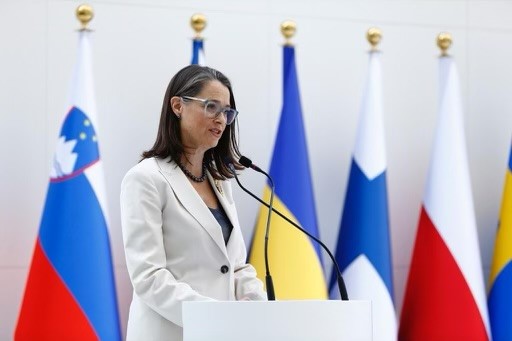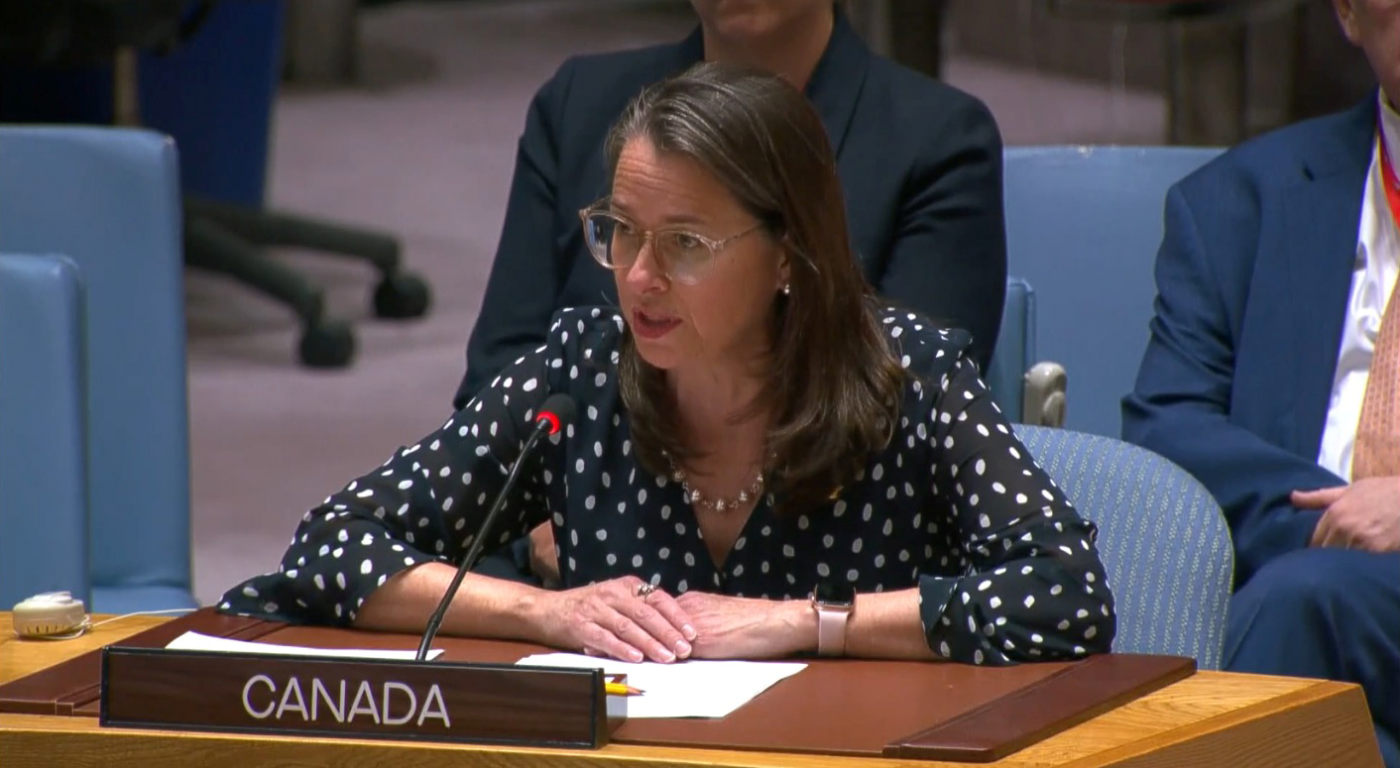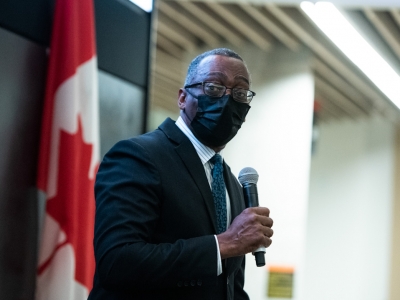By Dan Rubinstein
Last June, during Climate Action Week in London, England, the international Powering Past Coal Alliance (PPCA) hosted an event at the iconic Battersea Power Station — an enormous, decommissioned coal-fired power plant on the River Thames that re-opened in 2022 as one of the city’s premier multiuse venues.
The symbolism was powerful.
The PPCA was launched in 2017 by Canada and U.K., spearheading a campaign to eliminate the use of coal in energy systems around the world because these emissions are the single largest contributor to the climate crisis.
More than 180 governments, businesses and organizations have become members of the alliance, and according to Catherine Stewart, Canada’s Ambassador for Climate Change, its success at accelerating the shift away from coal shows how important it is for the international community to work together.

Catherine Stewart at the Nuclear Energy Summit at COP28 in Dubai.
“Canada is committed to phasing out coal power by 2030,” says Stewart, who spoke at the Battersea event.
“We need to share our experience and expertise with other nations. But we also need to recognize that every country has a different starting point and that there are a variety of measures we can use to support a just transition.”
In recognition of her exemplary work around sustainability and international negotiations, Stewart is this year’s recipient of the Bissett Alumni Award for Distinctive Contributions to the Public Sector from Carleton University’s School of Public Policy and Administration (SPPA).
“When I talk about climate change internationally, my focus is on a few things,” says Stewart, who graduated from SPPA with a Master of Public Administration and will be presented with the award at an alumni reception in September.
“One of them is mitigation and what we’re doing domestically to drive down greenhouse gas emissions. Secondly, it’s adaptation and what we’re doing in Canada to help build resilience to the impacts of climate change. And thirdly, it’s climate finance — what we’re doing to support developing countries so that they can also mitigate and adapt.”
The Dynamics Between Developed and Developing Countries
After serving in various senior executive positions at Environment and Climate Change Canada (ECCC) for eight years, Stewart was appointed as Canada’s Ambassador for Climate Change in 2022.

Catherine Stewart while Chief Negotiator in Katowice, Poland at COP24 in 2018. (Photo by IISD/ENB | Kiara Worth)
Before joining ECCC, she worked on a range of public policy issues, including international affairs and economic development, in federal departments such as Public Works and Government Services Canada, the Privy Council Office and the Department of National Defence. Prior to those positions, she worked on a United Nations peacekeeping and electoral mission in Mozambique.
“I have a lot of familiarity with diplomacy and negotiations,” she says, “and a lot of familiarity with the dynamics between developed and developing countries on big issues.”
As Ambassador for Climate Change, Stewart’s job is rooted in engaging with other countries at senior levels — ministers, ambassadors, business and NGO leaders — to advance Canada’s priorities and defend our interests. She interacts with an array of partners, holds bilaterial meetings on topics like renewable energy, and plays a key role in the UN’s annual climate change conference, which is coming up in Azerbaijan in November.
All of these situations call for two-way dialogue, Stewart says. “Canada wants to know what other countries need to continue to move the needle on climate change, but we also have to explain our reality. For example, Canada is a major oil and gas producer and people want to know what we’re doing to mitigate emissions from that sector.”
The Beginning of a Lifelong Network
Looking back at her time at Carleton, Stewart says she really learned how to articulate an argument as a graduate student.
“Words are important,” she says. “I’ve worked in government policy for practically my entire career, and my ability to talk to people — and to put ideas down on paper — is invaluable.”
She also made many lifelong friends at university, several of whom have gone on to work in or with government as well — a supportive network that helped Stewart begin and sustain her career.

Stewart giving a speech at the 2023 UN Security Council in New York on climate and security.
The mix of instructors and speakers she was exposed to during her master’s was similarly helpful. Many worked in government and could back up theory with real-world knowledge.
“There was a real richness to the program,” she says, “and there was a nice mix of students, some of whom were already working and could bring their firsthand experience to our conversations.”
Now that she’s an experienced leader herself, Stewart is often approached by people who are concerned about climate change.
“The advice I give is to go and talk to people who are making a difference,” she says. “Go talk to clean tech companies, go talk to innovators, go talk to people who are out there doing amazing things. That’s inspiring, and that’s what gives me hope.”
Monday, August 12, 2024 in Alumni, Faculty of Public and Global Affairs, Government
Share: Twitter, Facebook



